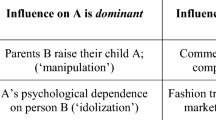Abstract
This paper develops a theory of optimal institutional structure for staggered-term (overlapping generations) organizations such as legislative bodies. Our model is a simple stochastic game of multi-principal, multi-agent dynamic relationships. Our results emphasize two key features that are determined by legislative founders at the “constitutional moment”. First, they will agree to institute a mechanism that endows (imperfectly informed) legislators with information about the history of play. Second, we provide conditions in which legislative founders will be indifferent to the structure of legislative procedures.
Similar content being viewed by others
References
Abreu, D. (1988). On the theory of infinitely repeated games with discounting. Econometrica, 56, 383–396.
Austen-Smith, D., & Banks, J. (1989). Electoral accountability and incumbency. In P. C. Ordeshook (Ed.), Models of strategic choice in politics (pp. 121–148). Ann Arbor: University of Michigan Press.
Banks, J., & Sundaram, R. (1998). Optimal retention in agency problems. Journal of Economic Theory, 82, 293–323.
Baron, D., & Ferejohn, J. (1989). Bargaining in legislatures. American Political Science Review, 83, 1181–1206.
Barro, R. (1973). The control of politicians: an economic model. Public Choice, 14, 19–42.
Bendor, J., Kumar, S., & Siegel, D. (2005). V.O. Key formalized: retrospective voting as adaptive behavior. Washington: American Political Science Association.
Besley, T. (2006). Principled agents? The political economy of good government. Oxford: Oxford University Press.
Bhaskar, V. (1998). Informational constraints and the Overlapping generations model: folk and anti-folk theorems. Review of Economic Studies, 65, 135–149.
Coate, S., & Battagalini, M. (2007). Inefficiency in legislative policy-making: a dynamic analysis. American Economic Review, 97, 118–149.
Dixit, A. (1995). The making of economic policy: a transaction costs approach. Cambridge: MIT.
Dutta, P. (1995). A folk theorem for stochastic games. Journal of Economic Theory, 66, 1–32.
Fearon, J. (1999). Electoral accountability and the control of politicians: selecting good types versus sanctioning poor performance. In A. Przeworski, S. Stokes, & B. Manin (Eds.), Democracy, accountability, and representation (pp. 55–98). New York: Cambridge University Press.
Ferejohn, J. (1986). Incumbent performance and electoral control. Public Choice, 50, 5–25.
Ferejohn, J. (1999). Accountability and authority: toward a political theory of electoral accountability. In A. Przeworski, S. Stokes, & B. Manin (Eds.), Democracy, accountability, and representation (pp. 131–154). New York: Cambridge University Press.
Fiorina, M. (1981). Retrospective voting in American national elections. New Haven: Yale University Press.
Friedman, J. (1986). Game Theory with applications to economics. Oxford: Oxford University Press.
Fudenberg, D., & Tirole, J. (1991). Game theory. Cambridge: MIT.
Gersbach, H., & Liessem, V. (2005). Re-election threshold contracts in politics. CEPR Discussion Paper No. 5175.
Kahneman, D., Fredrickson, B. L., Schreiber, C. A., & Redelmeier, D. A. (1993). When more pain is preferred to less: Adding a better ending. Psychological Science, 4, 401–405.
Kahneman, D., Wakker, P., & Sarin, R. (1997). Back to Bentham? explorations of experienced utility. Quarterly Journal of Economics, 112, 375–405.
Kiewiet, R., & Udall, M. (1998). Twenty-five years after Kramer: an assessment of economic retrospective voting based upon improved estimates of income and employment. Economics and Politics, 10, 219–248.
Kramer, G. (1971). Short-term fluctuations in U.S. voting behavior, 1896–1964. American Political Science Review, 65, 131–143.
Laibson, D. (1997). Golden eggs and hyperbolic discounting. Quarterly Journal of Economics, 62, 443–477.
Levitt, S. (1996). How do senators vote? disentangling the role of voter preferences, party affiliation, and senator ideology. American Economic Review, 86, 425–441.
Maskin, E., & Tirole, J. (2004). The politician and the judge: accountability in government. American Economic Review, 94, 1034–1054.
Morelli, M. (1999). Demand competition and policy comprise in legislative bargaining. American Political Science Review, 93, 809–820.
Muthoo, A., & Shepsle, K. (2008). The constitutional choice of bicameralism. In E. Helpman (Ed.), Institutions and economic performance (pp. 249–292). Cambridge: Harvard University Press.
Persson, T., & Tabellini, G. (2000). Political economics: explaining economic policy. Cambridge: MIT.
Prat, A. (2005). The wrong kind of transparency. American Economic Review, 95, 862–877.
Redelmeier, D., & Kahneman, D. (1996). Patients’ memories of painful medical treatments: real-time and retrospective evaluations of two minimally invasive procedures. Pain, 66, 3–8.
Redelmeier, D., Katz, J., & Kahneman, D. (2003). Memories of colonoscopy: a randomized trial. Pain, 104, 187–194.
Rubinstein, A. (1982). Perfect equilibrium in a bargaining model. Econometrica, 50, 97–110.
Sarafidis, Y. (2007). What have you done for me lately? Release of information and strategic manipulation of memories. Economic Journal, 117, 307–326.
Shepsle, K., Van Houweling, R., Abrams, S., & Hanson, P. (2009). The senate electoral cycle and bicameral appropriations politics. American Journal of Political Science, 53, 343–359.
Tufte, E. (1978). Political control of the economy. Princeton: Princeton University Press.
Author information
Authors and Affiliations
Corresponding author
Rights and permissions
About this article
Cite this article
Muthoo, A., Shepsle, K.A. Information, institutions and constitutional arrangements. Public Choice 144, 1–36 (2010). https://doi.org/10.1007/s11127-009-9500-5
Received:
Accepted:
Published:
Issue Date:
DOI: https://doi.org/10.1007/s11127-009-9500-5




